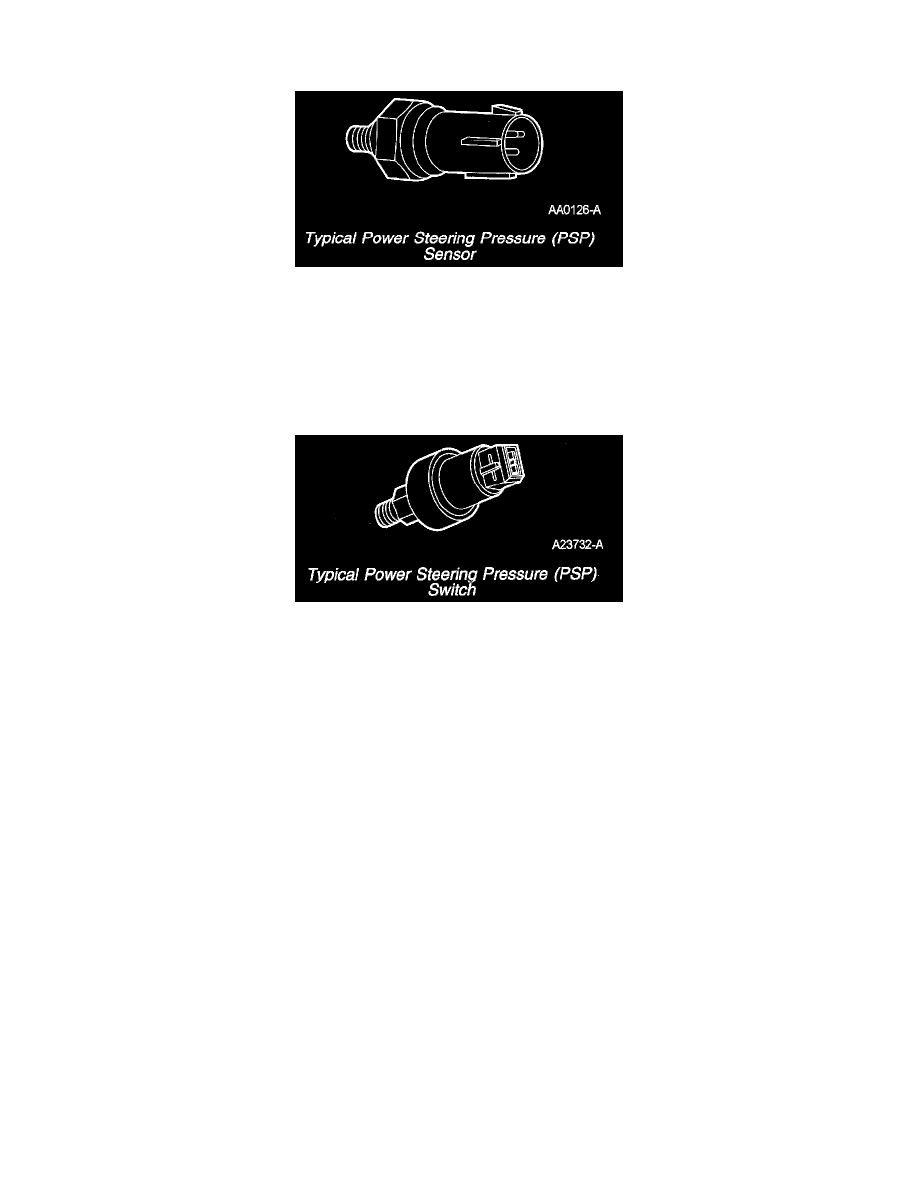Milan FWD L4-2.3L (2008)

Power Steering Pressure Switch: Description and Operation
Power Steering Pressure (PSP) Sensor
Typical Power Steering Pressure (PSP) Sensor
The PSP sensor monitors the hydraulic pressure within the power steering system. The PSP sensor voltage input to the PCM changes as the hydraulic
pressure changes. The PCM uses the input signal from the PSP sensor to compensate for additional loads on the engine by adjusting the idle RPM and
preventing engine stall during parking maneuvers. Also, the PSP sensor signals the PCM to adjust the transmission electronic pressure control (EPC)
pressure during increased engine load, for example, during parking maneuvers.
Power Steering Pressure (PSP) Switch
Typical Power Steering Pressure (PSP) Switch
The PSP switch monitors the hydraulic pressure within the power steering system. The PSP switch is a normally closed switch that opens as the
hydraulic pressure increases. The PCM provides a low current voltage on the PSP circuit. When the PSP switch is closed, this voltage is pulled low
through the SIG RTN circuit. The PCM uses the input signal from the PSP switch to compensate for additional loads on the engine by adjusting the
idle RPM and preventing engine stall during parking maneuvers. Also, the PSP switch signals the PCM to adjust the transmission electronic pressure
control (EPC) pressure during increased engine load, for example during parking maneuvers.
